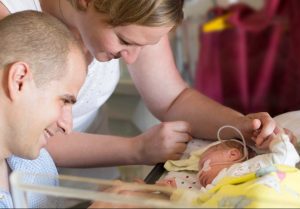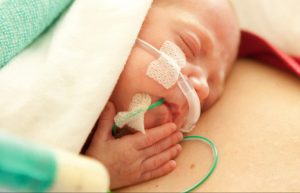The European Foundation for the Care of Newborn Infants (EFCNI) is happy to announce the upcoming revision of 76 standards of the European Standards of Care for Newborn Health (ESCNH). As part of the revision process, we invite healthcare professionals, parent representatives, industry partners, and all other stakeholders to take part in a public consultation and provide feedback on the ESCNH with the aim of further improving their quality.
More information regarding the updating process can be found at the end of this page.
The public consultation is now closed.
Please click on the topic names to access the respective standards.

Access the public consultation survey of the standards of “Infant- & family-centred developmental care” by clicking on the respective standard name:

Access the public consultation survey of the standards of “Care procedures” by clicking on the respective standard name:

Access the public consultation survey of the standards of “Patient safety & hygiene practice” by clicking on the respective standard name:

Access the public consultation survey of the standards of “Follow-up & continuing care” by clicking on the respective standard name:

Access the public consultation survey of the standards of “NICU design” by clicking on the respective standard name:

Access the public consultation survey of the standards of “Medical care & clinical practice” by clicking on the respective standard name:

Access the public consultation survey of the standards of “Nutrition” by clicking on the respective standard name:

Access the public consultation survey of the standards of “Ethical decision-making & palliative care” by clicking on the respective standard name:

Access the public consultation survey of the standards of “Birth & transfer” by clicking on the respective standard name:

Access the public consultation survey of the standards of “Data Collection & documentation” by clicking on the respective standard name:

Access the public consultation survey of the standards of “Education & training” by clicking on the respective standard name:
In line with contemporary literature (1–4), EFCNI sets up a public and an expert consultation for the respective standards to facilitate the revision process.

The public consultation gives professionals that already participated in the ESCNH as Topic Expert Group (TEG) members, parent organisations and further stakeholders such as professional/international organisations and industry partners the chance to provide feedback on the ESCNH in order to further improve quality. Additionally, EFCNI wants to ensure that the wider community has the opportunity to contribute and form the European Standards of Care for Newborn Health. The consultation period runs from the beginning of April 2023 until July 2023 and the consultation is accessible via an online survey (links are provided above).
For the expert consultation, independent specialists are invited to review one of the standards currently under revision to increase general acceptance and ensure the conclusiveness of evidence. EFCNI aimed at consulting one to two experts per standard. The expert consultation phase is conducted simultaneously to the public consultation and is accompanied by an online questionnaire, which is only accessible to invited experts.

If you are interested in becoming an independent expert reviewer for the current or future revisions of the European Standards of Care for Newborn Health, you can send us your name and your expertise to standards@efcni.org.
After both consultation phases have ended, all feedback willl be consolidated by the medical director and the project coordinator at EFCNI. For reasons of transparency, all comments of the public consultation are published on this website after the revised standards are final. Respondents can request that their contribution is not published, when stating ample justification. In accordance with our privacy policy, names are not displayed.
Following the consultation phase, the first authors of the original standards will receive the consolidated comments of both consultations. Thereafter they will review the comments and revise the standards in agreement with their co-authors. Once a revised draft of the standard is available, the respective TEG chairs are asked for proof of content. The corresponding Chair Committee voting, which requires an 80% majority for an update to be passed, will be held in 2024 for majorly revised standards, in accordance with the original developing process.
For further information on the revision process or the ESCNH you can contact us via email at standards@efcni.org.
You are currently viewing a placeholder content from Facebook. To access the actual content, click the button below. Please note that doing so will share data with third-party providers.
More InformationYou are currently viewing a placeholder content from Instagram. To access the actual content, click the button below. Please note that doing so will share data with third-party providers.
More InformationYou are currently viewing a placeholder content from X. To access the actual content, click the button below. Please note that doing so will share data with third-party providers.
More Information